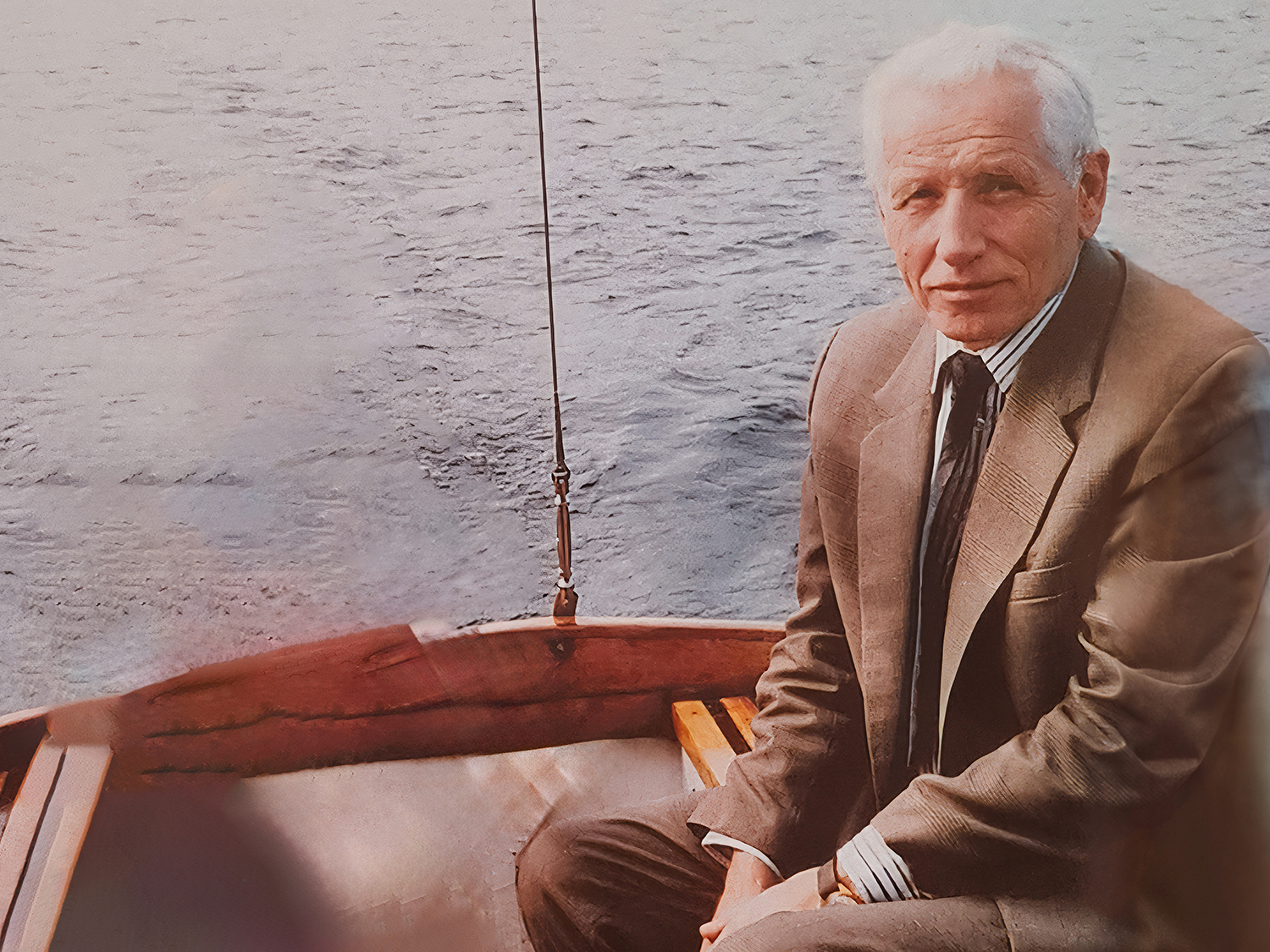 Professor Vladas Gronskas can be confidently described as the founder of Lithuanian economics. It was he who undertook the academic mission of teaching the younger generation Western principles to help the country become more European.
Professor Vladas Gronskas can be confidently described as the founder of Lithuanian economics. It was he who undertook the academic mission of teaching the younger generation Western principles to help the country become more European.
“The history of economic thought is a kind of intellectual "kick-start" to overcome the inertia of economic thinking and to look to the future of the science of economics” This is a quotation by Prof. Gronskas placed on the wall of the auditorium named after him. Vilnius University (VU) Kaunas Faculty hosts seminars in his name and fosters a philosophy that inspires every lecturer and researcher to turn change into science-based progress.
“It is no coincidence that Prof. Gronskas was called the only true professor of the Kaunas Faculty of Humanities. I would say that it was his teaching that led to the economic turning point of the 1990s in Lithuania, which we often call "wild capitalism", even though it was only a transition from a command to a market economy. This transition was difficult, painful and therefore so memorable to several generations,” says Giedrius Romeika, the Dean of VU Kaunas Faculty, who had the honour of being a student of Prof. Gronskas.
Vladas Kazys Gronskas (1940–2010) is known as a Lithuanian economist, Habilitated Doctor of Social Sciences, Professor at the Vilnius University Kaunas Faculty of Humanities, who had studied the problems of the interaction between the supply of goods to the market and the production of goods for family consumption in mixed economies.
Professor impressed with academic gentlemanliness
“Students have been a major influence on my professional life. I felt the psychological pressure of the audience all the time. This has encouraged me to improve my qualifications and climb the ladder of my scientific career as a teacher,” wrote Prof. Gronskas.
His colleague and good friend Prof. Remigijus Čiegis says that Prof. Gronskas had always impressed with his calmness, tolerance of other opinions, and deep commitment to scientific truth.
“I could hardly imagine the professor outside the university. He was a university man in his entire being. A generous personality and a gifted scholar, he knew how to speak to students and to the readers of his scholarly works in an unhurried, deeply thoughtful, "Gronskian" combination of plain speaking and economic wisdom,” recalls Prof. Čiegis, who was an assistant to Prof. Gronskas during his PhD studies.
“His own research interests covered a very wide range of issues in economic theory. Towards the end of his life, he was particularly deeply concerned with the problems of the interaction between the supply of goods to the market and the production of goods for family consumption in a mixed economy, which was somewhat unexpected, especially in view of his liberal economic attitudes at the beginning and middle of the 1990s,” says Prof. Čiegis. “Everyone who had the honour to communicate or collaborate with Prof. Gronskas always had a great respect for him because of his simplicity, patience, and respect for his interlocutor. He was a very bright and intelligent person. This creative and incredibly hard-working man ignited many of his students with his theoretical research and prepared them for responsible academic and scientific work for the benefit of Lithuania's welfare and science.”
Keeping the memory alive by gathering young scientists
In 2002-2006, the Institute of Sociocultural Research of VU Kaunas Faculty of Humanities organised a series of seminars by Prof. Gronskas devoted to the issue of sustainable development in a mixed economy. They were attended by eminent Lithuanian economists and scientists from Sweden, Finland, Germany, Denmark, Poland, members of the European Parliament and the Lithuanian Seimas.
In 2011, the scientific conference "Development in Economics: Theory and Practice", organised by VU Kaunas Faculty of Humanities, was named after Professor Gronskas, honouring the memory of the eminent personality and scientist, as the professor, for almost half a century, shared the ideas of economic theory with the students and scientists of VU Kaunas Faculty of Humanities, as well as fostered the entrepreneurial spirit and the economic acumen in young colleagues.
This year, for the 19th time, the annual conference brings together young researchers, postgraduates and PhD students to share their research results, analyse topics of interest, solve economic and management problems, and improve their skills by discussing topical issues.
It is expected that this conference will foster closer cooperation between science and business and will be useful for further research and even for private business.
A tribute to VU and economic philosophy
After graduating from Vilnius University in 1963, Gronskas, a graduate of the Faculty of Economics (now VU EVAF), was transferred to the newly established VU Kaunas Evening Faculty (now Kaunas Faculty) and worked there until his retirement. In 1973 he defended his candidate (now PhD) thesis, and in 1977 he was awarded the title of Associate Professor. In 1985 he obtained his PhD (now habilitated doctor). From 1983 to 1993, he was Head of the then Department of Political Economy. In 1985 Gronskas was awarded the title of Pedagogical Professor.
Prof. Gronskas' research interests encompassed a very broad spectrum of economic theory. He published monographs titled “The Mechanism of the Economic Self-Accounting” (1981), “Structure of Societal Reproduction” (in Russian language; 1983), “Business Economy” (1993), “Business, Pseudo-business, Anti-business” (1995), “Risks of Commercial Entrepreneurship” (1997), “Commercial Entrepreneurship and Natural Economic Activities” (2001), “Economic Analysis” (2005), the educational book “The Fundamentals of the History of Economic Thought” (2007) as well as a number of others teaching tools and over 200 academic articles. He has successfully supervised PhD students' dissertations and participated in dissertation defences as a member of the board or as an opponent.